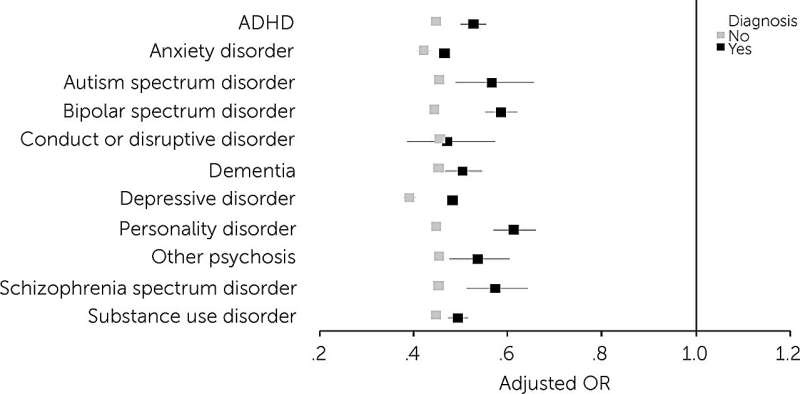This article has been reviewed according to Science X's editorial process and policies. Editors have highlighted the following attributes while ensuring the content's credibility:
fact-checked
peer-reviewed publication
trusted source
proofread
New research finds greater continuity of psychotherapy after shift to telehealth

The rapid transition to virtual care that occurred with the onset of the COVID-19 pandemic resulted in better continuity of psychotherapy visits compared to prior to the pandemic when almost all visits were in-person, according to new research published in Psychiatric Services. In addition, the time between appointments grew shorter after the transition to virtual care. The study results highlight the benefits of continued availability of virtual psychotherapy.
This large population-level study found that after the onset of the COVID pandemic, when about half of all psychotherapy visits were via telehealth, patients with mental health conditions were less likely to have significant disruption in care—defined as gaps of more than 45 days between psychotherapy appointments.
Individuals with mental health conditions often miss health care appointments, and lapses in treatment can hinder overall improvement in mental health symptoms. Efforts to improve engagement in care are essential to promoting overall wellness among those receiving care, the authors note.
The researchers analyzed electronic health records and insurance claims data for more than 110,000 individuals with at least one psychiatric diagnosis who attended at least two psychotherapy visits (for a total of more than 550,000 visits) during the nine months before and nine months after the onset of COVID-19 (June 14, 2019, through Dec. 15, 2020).
Before the pandemic, 97% of psychotherapy visits were in person and approximately 35% of the visits were followed by a gap of more than 45 days. In the period after the onset of the pandemic, more than half of visits (52%) were virtual, and about 18% of visits were followed by a gap of more than 45 days. In addition, prior to the pandemic, the median time between visits was 27 days and after the pandemic it was 14 days. Thus, individuals were more likely to return for additional psychotherapy after the widespread shift to virtual care.
For all types of psychiatric diagnoses studied, and across sociodemographic characteristics, individuals experienced fewer disruptions in psychotherapy in the nine months after COVID-19 began compared to before. However, the magnitude of the difference in disruption varied across psychiatric diagnoses. Individuals with depressive, anxiety, or bipolar disorders were more likely to maintain consistent psychotherapy visits, whereas those with schizophrenia, ADHD, autism, conduct or disruptive disorders, dementia, or personality disorders were more likely to have a disruption in their visits.
Overall, the results of the research, the authors conclude, support the continued availability of virtual psychotherapy when appropriate infrastructure is in place.
More information: Brian K. Ahmedani et al, Psychotherapy Disruption Before and After the Transition to Virtual Mental Health Care Induced by the COVID-19 Pandemic, Psychiatric Services (2023). DOI: 10.1176/appi.ps.20230181


















